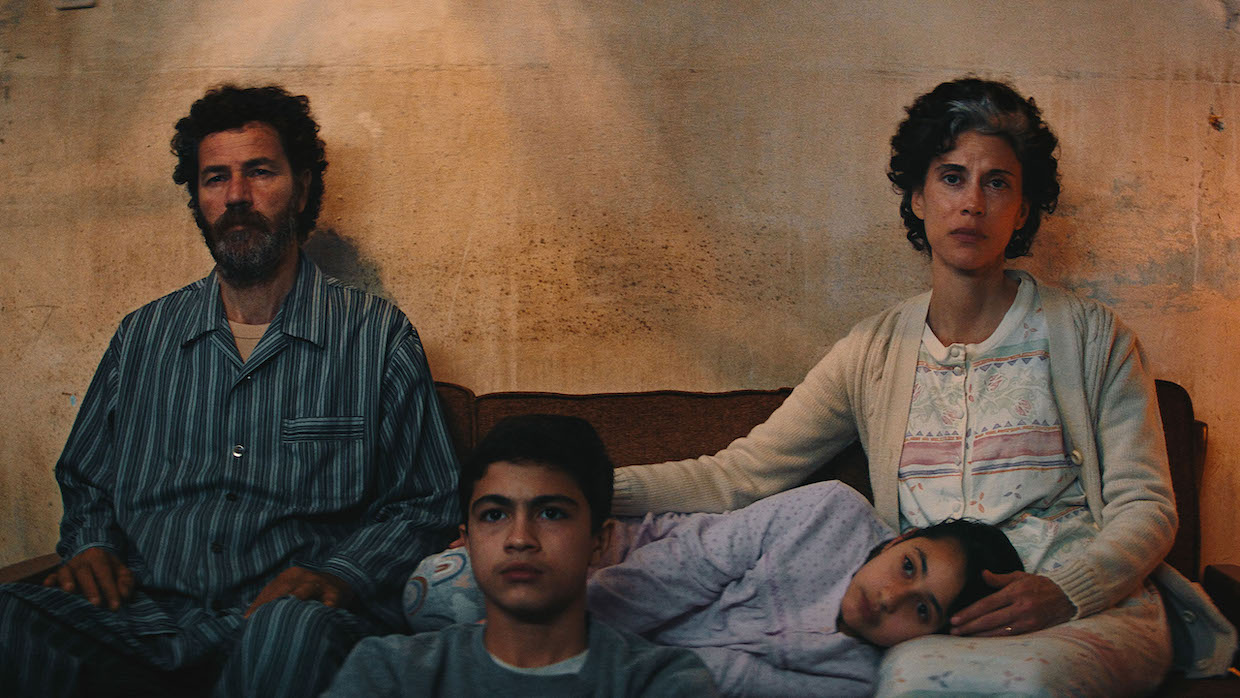 Back to selection
Back to selection
“We Were Forced to Evacuate Palestine” | Cherien Dabis, All That’s Left of You
 All That's Left of You, courtesy of Sundance Institute.
All That's Left of You, courtesy of Sundance Institute. Films are made over many days, but some days are more memorable, and important, than others. Imagine yourself in ten years looking back on this production. What day from your film’s development, production or post do you think you’ll view as the most significant and why?
The day that I’ll never forget as long as I live is the day we were forced to evacuate Palestine. I had already spent nearly five months prepping with my local and key film crew on the ground. And many members of my foreign crew had just flown in from Germany. We had just celebrated their arrival in Ramallah with a welcome party. We had just completed our several-days long tech Recce, where we took everyone around the country from Ramallah to Jericho to Nablus to Haifa and Jaffa—to each filming location—and walked them through our shooting plans. We had already begun construction on our refugee camp location, which we were shooting in a refugee camp in Jericho. We had amassed a giant warehouse of stunning period props and carefully curated set dressing. We were a mere two weeks away from shooting. We were so close.
Leaving all of that incredible hard work behind, and more than anything, leaving all of our Palestinian crew behind was heart wrenching; one of the hardest things I’ve ever had to do. I didn’t know if or when we’d be able to return. I didn’t know if or when we’d be able to continue. But I had the sinking feeling that we might have to start all over. All I knew for certain was that we had just spent a good chunk of our financing prepping the entire film, and now had to put everything on indefinite hold. The uncertainty of it loomed large over me, and my mind was buzzing with questions of where we would go, how we would pivot, what we would do, whether we’d have to raise more money and how, whether we’d have to shoot elsewhere—It was a lot. I suddenly realized I was not only helming a film but now also navigating a simultaneous financial and logistical crisis. I was suddenly the CEO of a collapsing corporation.
It was 8 am when my foreign crew and I made our way to the Allenby border crossing, teary eyed. Most of us not wanting to leave but understandably pressured by worried-sick families, knowing we had to. As a Palestinian, I felt horrible guilt that leaving was an option for me. I wanted desperately to stay. I wanted desperately—and in some ways more than ever—to make the film exactly as we had planned it. But that was now impossible. The traffic at the border was at a standstill. We all got out of our cars and vans and hung out together on the side of the road, clinging to each other, hugging, ruminating over what might happen. There were rumors that the border might close, rumors that if we didn’t get out today, we might be “stuck.” I prayed I’d get stuck. But I also felt responsible for my crew and wanted to make sure they felt safe. The border never closed, and we finally got through. A journey of 66 miles took nearly 12 hours by the time we finally arrive in Amman. My mom welcomed us with open arms. And as we settled into our new reality, and I began facing the future of this film venture I had started, my crew and I realized we were bonded for life. That was the day we became family.
See all responses to our annual Sundance Question here.
